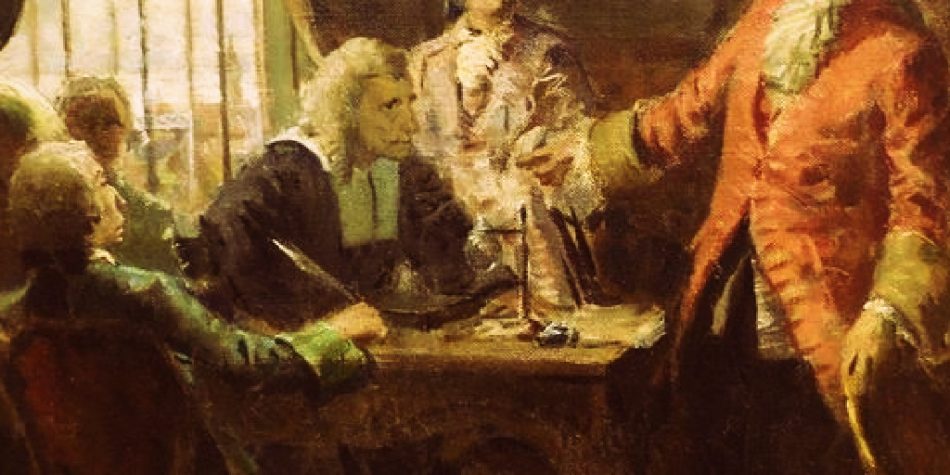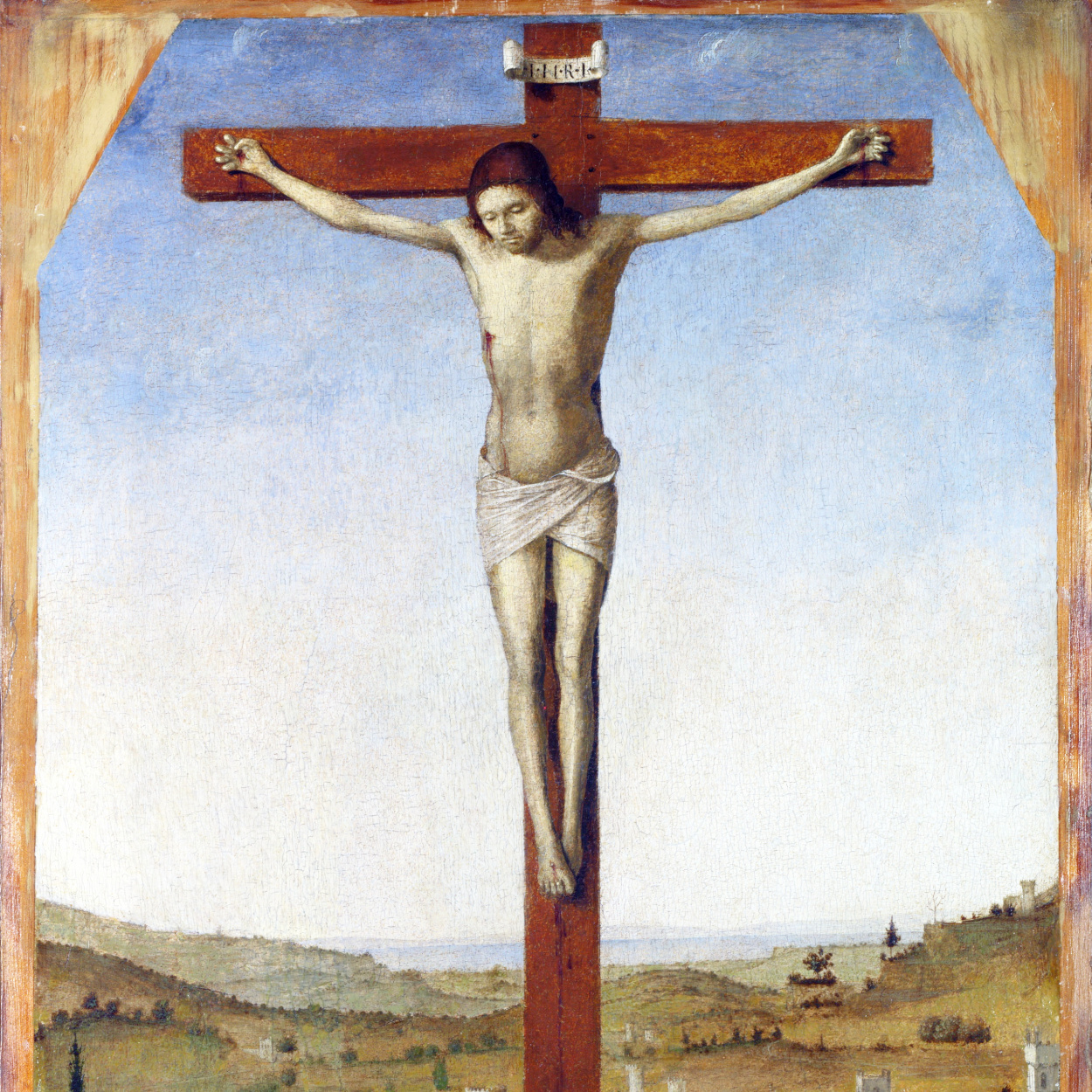How do we get out of this mess in the United States?
Well, of course, that largely depends on what you mean by “mess.” And if not already entirely clear by our cacophonous, conflicted national discourse, we’re hardly in agreement on what that is.
To over-focus on diagnoses highlighted by the Republican v. Democrat prizefight is to miss something important, I believe. And while I tried recently to sketch the outlines of that broader contrast in narratives of danger, I really only succeeded in scratching the surface of the divergence in interpretive frameworks making sense of U.S. decline. In what follows, I take that analysis of “problem definition” one step deeper, before pivoting to the equally important question of “solution definitions” and the interesting ways they also profoundly diverge.
Story Wars in America. That previous piece explored whether you see the central problem as the Other Side’s views or a larger pattern of distrust and resentment we all seem to be falling into. Yet beneath the surface of these more conspicuous patterns, there’s something else lurking underneath it all, like bedrock rubbing up against each other along a volatile fault-line.
Having just finished making life-long converts of all my boys to the Star Wars saga, let’s call this the Story Wars, centered around, once again: How exactly are we to make sense of the fundamental problem facing America?
Far beyond the “Republicans” or the “Democrats” being the problem, the true conflict requires delving deeper into the animating worldviews shaping how folks on the right and left (and in between) think, feel and fret about what’s going on, as well as what ought to be done about it all.
This is where it gets interesting, because there are, in my judgment, remarkably few instances of what Charles Taylor calls “perspicuous contrast” (clear comparison or juxtaposition) between these fundamental narratives.
Making sense of American decline. To introduce this deeper narrative faultline, I quote liberally below from a remarkable sermon given recently by the brother of an African-American friend of mine, Mannie Ajayi, who has actively worked to help heal our country’s divides. Before congregants at Lansdale Life Church, Seyi Ajayi acknowledged the “tremendous polarization” in America, where we’re seeing people first “group into teams” and then each side “trying to identify the source of evil, oppression, and pain.”
And who do they blame? Naturally, “the other team—it’s your fault, the source of evil is your fault. So, if Republican everything wrong with the world is Democrats (and vice versa).” Illustrating this well is the story of Chuck Colson, who served prison time after Nixon’s scandals—and who later reflected that during this time, his enemy was “anyone opposed to what Nixon was doing.”
But in prison, Chuck met people who were former political rivals—and whom he prayed with as his brothers, after converting to Christianity. This realization was earth-shaking at the time for Colson, as it could be for the rest of us right now—partly because it refocuses our understanding of what the problem really is.
The idea that “Satan is the source of all evil in this world” is something Seyi acknowledged as “a very basic Christian concept—but very important for a world convinced that each other is the enemy.”He went on to reiterate: “Our enemy is not people. Our enemy is Satan and his forces”—citing the Biblical passage, “our struggle is not against flesh and blood, but against spiritual forces of evil.” Seyi then elaborates:
The battle that supersedes all other battles [is] the battle Satan wages to separate us from our God. Of all the battles, this is the one most important – it is at the root of every other problem in the world. The battle to separate created from Creator.
When was the last time you heard Satan referenced outside of a church to explain the social ills we are seeing? Probably not recently, right?
To many, this would simply be an annoying distraction. Indeed, the difference in focus is striking—especially compared to the more popular story being told about “evil” as centered upon not the spiritual realm, but rather on underlying entities of institutional superiority—aka, racism, sexism, classism, heterosexism, etc.
In other words, if we’re not paying attention to the true source of evil, it’s far too easy for us to look at each other and think we’ve found it!
This is not the same as the Christian analysis—arguably even substituting for it. As John McWhorter suggested at a Heterodox Academy conference panel: “the idea that white privilege is a ‘stain’ in a white person that can never actually be overcome, but must be constantly attested to…that’s equivalent to the notion of original sin.” He elaborated in the Atlantic in 2018, “When someone attests to his white privilege with his hand up in the air, palm outward—which I have observed more than once—the resemblance to testifying in church need not surprise.”
Black scholar Thomas Sowell has raised the concern, “Politically there are few ideas more potent than the notion that all your problems are caused by other people and their unfairness to you.” Why potent? Because it creates anger and your anger can be weaponized for political ends. (Thus, Those People become the enemy—rather than uniting as a human family against the evil unleashed by Satan himself).
That’s why this man of faith argues earnestly that “outside of a supernatural view, we lack the tools to identify the ultimate source of evil and injustice” —and that’s why “we see each other as the enemy.”
In other words, if we’re not paying attention to the true source of evil, it’s far too easy for us to look at each other and think we’ve found it!
What will save America from these messes?
Depending on what we believe is the great problem facing America, we’re going to have very different views of its solutions and answers as well. Specifically, if you’ve become convinced evil is embodied in your political opposite (and surveys confirm that large numbers of Americans believe exactly this), then it’s going to influence what you do next. Thus, if you think the Great Problem facing America is the power held by those evil conservatives (or those evil liberals) —then the answer is clear: defeat Those Awful People and find some way to regain power.
The primary solution, in both cases, is a political one. Once power is again secured, we rest our hopes on a string of remedies praised on each side—reflected in each party’s national platform, and the respective promises coming out of each campaign.
Yet what if the Great Problem facing the country is not embodied in our political opposites? What if, as Seyi asserts, that problem is tied up in hostility, hatred, and other temptations rising before all of us? If that’s the case, then the answers and solutions lie not in political changes—however important they may be—but instead, by going deeper in looking inside our own hearts
This is precisely what both inspired pastors and prophets are teaching Americans today. Here’s how Seyi Ajayi puts it:
There are unseen ethical standards that even if not harmful to anyone else can harm you and degrade the body. When we lose the fear of God, we lose the sacredness of God’s laws and our concepts of morality get so limited in ways that are so harmful. [We start to decide] God does not have the right to tell us what’s good for us. We don’t believe there’s something beyond themselves that defines or puts boundaries on how they should live lives—and so become “laws unto themselves.”
Seyi cites the biblical scripture that portrays a time when there was “No king in the land—and everyone did what was right in their own eyes.” He then cites Jonathan Haidt’s work on competing moral foundations between liberals and conservatives (and the relative difference in how much value is given to “authority,” “loyalty” and “sanctity” as values) as an explanation for what he says next.
Although people may be legitimately “trying to do right,” new problems arise when “the concept of what is right gets decoupled from authority and guidelines of what is right and what is wrong—and that’s why you see the madness you see.”
This is what happens when our foundations of morality are so skewed because we don’t have the fear of God. [Instead, we see] this idea that what I want, how I feel, and what I desire as the ultimate authority of right or wrong. It’s my opinion that the majority of the problems stem by this breakdown in our culture’s understanding of morality—that we’ve lost the fear of God.
What’s the answer to this all? Seyi continues, citing this in 2nd Chronicles: “If my people, who are called by my name, will humble themselves and pray and seek my face and turn from their wicked ways, then I will hear from heaven, and I will forgive their sin and will heal their land.”
He continues:
This is the message for us if we want God to come to us and rest on our lives. He asks us to repent– from our sexual immorality, addictions to entertainment, of our anger and hatred of our neighbors, of everything that keeps us from loving God with all our hearts. And he asks us to pray – to cry out to God for justice, for healing in the nation.
Seyi summarizes, “There’s a remedy to these problems everywhere—and it comes when God rests upon his people. God has an answer to racial tension. God has an answer to societal breakdown. The color line is washed away in the blood of Christ.”
That regeneration may arguably be the best way to allay social injustices too
Contrast this, once more, with the more popular commentary about how to solve racial or political tensions in this country. When was the last time you heard anyone with a prime-time platform argue it was time for the American people to rediscover humility, forgiveness and maybe turn off their screens to focus a little more on their loved ones?
While commentators across the political spectrum raise impassioned voices to highlight the urgency of fighting for certain policies and plans (and while these issues do matter to people of faith), they do not represent the salvation of America for Christians. On that basis, Pastor Grogan and colleagues agree, “We do not believe political or social reform is the solution for our world or nation. Divine salvation and regeneration of the human spirit are the most effective ways to transform our culture.”
That regeneration may arguably be the best way to allay social injustices too. Referring to racial bias, newly called Elder Ahmad Corbitt describes the message of Christ as a legitimate pathway to overcoming prejudice: “The deeper you allow the gospel to sink in you, the more you consecrate yourself to the Lord, the more you see those type of offenses as the problem of those who give them.” He added,. “They are not your problems. If we really are going to all come together in one in Zion—as one people, one heart, one mind—that starts and ends with embracing the gospel more and more deeply and consecrating ourselves to the Lord.”
Here, we return to Seyi Ajayi and his final witness:
The keys to the type of revolution we actually want to see in this country and world will come when we meditate on the greatest injustice ever perpetrated against a man, [when we recognize that] 2000 years ago, a perfect man—a man who was kind to everyone, a man willing to associate with people no one was willing to associate with, to hug the unclean, willing to speak truth to those he loved, a man who healed the sick, cast out demons, a man who was nothing but love….and was hated. And falsely accused. They arrested him and beat him. They humiliated him. Naked. They whipped his back. They put a crown of thorns on his head—and forced him to carry the instrument of torture used to kill him. They hung him on a tree with the worst of society around him.
This “greatest injustice perpetrated on anyone” Seyi continues, “brought justice to us all” as we are willing to follow His words. “He invites us to leave behind our sins and know him. While we were yet sinners, Christ died for us. And out of that, he was crowned king.” He concludes…
Jesus is king over the republican party, democratic party. Jesus is king. The only reasonable response is to pledge allegiance to the king—to give him our full allegiance. It’s time to give Jesus everything. To give our whole lives to him—to surrender. And to cry for God to come and show mercy to this nation, to show mercy to this world.
That’s not the solution you’ve been hearing proposed in this great contest in our land—not from politicians on the right, and not from politicians on the left.
But to Christian believers all over the world, it’s not only an alternative view. It’s the only pathway that could actually save us all from the escalating mess we now find ourselves in.
















